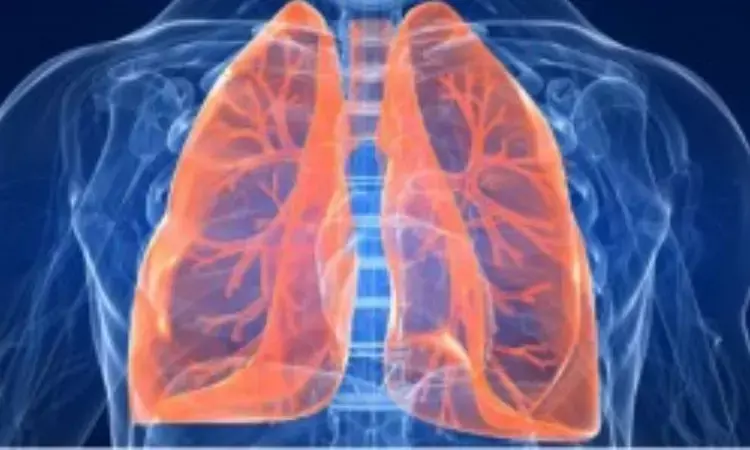- Home
- Medical news & Guidelines
- Anesthesiology
- Cardiology and CTVS
- Critical Care
- Dentistry
- Dermatology
- Diabetes and Endocrinology
- ENT
- Gastroenterology
- Medicine
- Nephrology
- Neurology
- Obstretics-Gynaecology
- Oncology
- Ophthalmology
- Orthopaedics
- Pediatrics-Neonatology
- Psychiatry
- Pulmonology
- Radiology
- Surgery
- Urology
- Laboratory Medicine
- Diet
- Nursing
- Paramedical
- Physiotherapy
- Health news
- Fact Check
- Bone Health Fact Check
- Brain Health Fact Check
- Cancer Related Fact Check
- Child Care Fact Check
- Dental and oral health fact check
- Diabetes and metabolic health fact check
- Diet and Nutrition Fact Check
- Eye and ENT Care Fact Check
- Fitness fact check
- Gut health fact check
- Heart health fact check
- Kidney health fact check
- Medical education fact check
- Men's health fact check
- Respiratory fact check
- Skin and hair care fact check
- Vaccine and Immunization fact check
- Women's health fact check
- AYUSH
- State News
- Andaman and Nicobar Islands
- Andhra Pradesh
- Arunachal Pradesh
- Assam
- Bihar
- Chandigarh
- Chattisgarh
- Dadra and Nagar Haveli
- Daman and Diu
- Delhi
- Goa
- Gujarat
- Haryana
- Himachal Pradesh
- Jammu & Kashmir
- Jharkhand
- Karnataka
- Kerala
- Ladakh
- Lakshadweep
- Madhya Pradesh
- Maharashtra
- Manipur
- Meghalaya
- Mizoram
- Nagaland
- Odisha
- Puducherry
- Punjab
- Rajasthan
- Sikkim
- Tamil Nadu
- Telangana
- Tripura
- Uttar Pradesh
- Uttrakhand
- West Bengal
- Medical Education
- Industry
AI-Based Feedback Enhances Training of Novice Bronchoscopists

A recent study published in CHEST by Kristoffer M C and colleagues has introduced an innovative artificial intelligence (AI) system designed to aid in training novice bronchoscopists. This AI-based automatic bronchial segment identification system provides feedback to trainees and aims to improve their performance in flexible bronchoscopy.
Conducted as a randomized controlled trial within a standardized simulated setting, this study enlisted participants with no prior bronchoscopy experience. Novices practised on a mannequin, with the trial divided into two groups: the feedback group (FG) and the control group (CG). The FG, consisting of 10 participants, received real-time feedback from the AI system, while the CG, also comprising 10 participants, followed written instructions for training. The participants independently decided when to conclude their training and transition to performing a full bronchoscopy without assistance.
The results of the study showcased the remarkable impact of AI-based feedback on novice bronchoscopists' performance. The feedback group outperformed the control group across three crucial outcome measures:
● The FG demonstrated a significant improvement, completing 3.5 more bronchial segments than the CG.
● Trainees in the FG showed a remarkable improvement of 13.5 correct progressions compared to the CG.
● The FG performed bronchoscopies significantly faster, with a reduction of 214 seconds in procedure time.
The study's findings suggest that training guided by this novel AI-based system enhances novice bronchoscopists' performance. Trainees who received feedback from the AI system showed increased diagnostic completeness, more structured progress, and faster procedure times, highlighting the potential of AI to improve medical training outcomes.
The implications of this research extend beyond training novices. Future studies should explore the application of this AI system in a clinical setting and its effectiveness in further advancing the skills of experienced bronchoscopists.
In conclusion, AI-based systems like this offer promising avenues for enhancing medical training, ultimately leading to more proficient and efficient healthcare practices. The integration of AI into medical education has the potential to revolutionize how medical professionals are trained and, consequently, how patients are cared for.
Reference:
Cold, K. M., Xie, S., Nielsen, A. O., Clementsen, P. F., & Konge, L. (2023). Artificial Intelligence improves novices’ bronchoscopy performance – a randomized controlled trial in a simulated setting. Chest. https://doi.org/10.1016/j.chest.2023.08.015
Dr Kamal Kant Kohli-MBBS, DTCD- a chest specialist with more than 30 years of practice and a flair for writing clinical articles, Dr Kamal Kant Kohli joined Medical Dialogues as a Chief Editor of Medical News. Besides writing articles, as an editor, he proofreads and verifies all the medical content published on Medical Dialogues including those coming from journals, studies,medical conferences,guidelines etc. Email: drkohli@medicaldialogues.in. Contact no. 011-43720751


